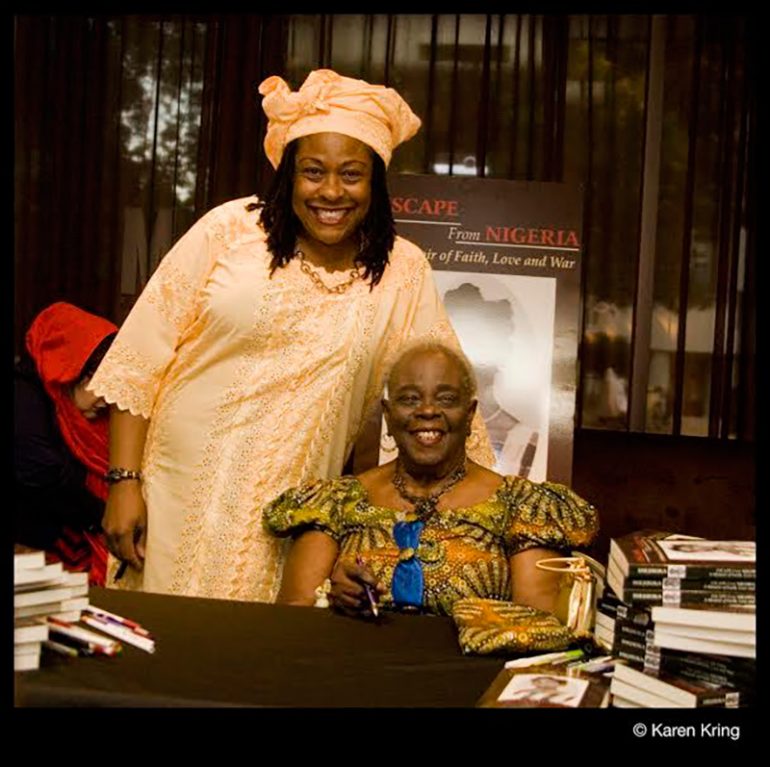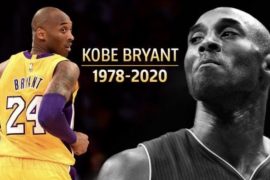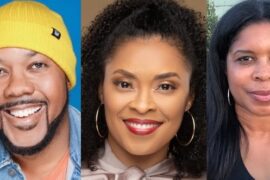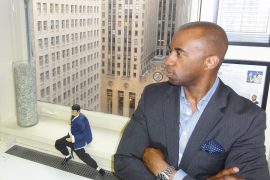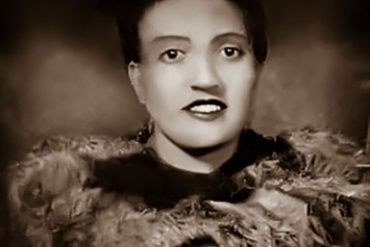You have written a book, Escape From Nigeria, with your mother. What has that experience been like?
It has taken me 17 years — between raising a family and working full-time — to complete the memoir of this extraordinary woman, who through her faith and the love she and my father shared, was able to save the lives of her six children by propelling a chain of miracles that would help us escape a horrific war. At the end of that three-year war, the genocide of millions of Igbos would rank fifth amongst the worst crimes against humanity of the 20th century, behind the Jewish Holocaust in Germany; the Ukrainian famine in the Soviet Union; the slaughter of Armenians by the Ottoman Empire; and the Khmer Rouge massacre of the Cambodians.
Without her, and without those miracles — wrought through Catholic missionaries who did not abandon a war-ravaged region, and five families from Chicago’s North Shore —I would not be here. I’ve shared bits and pieces of my story with readers during my 25 years as a Chicago journalist, and I’m pleased to finally bring this 17-year labor of love to fruition.
It entailed years of recording my mother’s life story — an oral history from her childhood to the present — sitting with her, laughing with her, crying with her, as she relived some of the most unimaginable horrors of war, prevailing only through her deep faith in God, and belief in a love that neither war, nor a separation of continents could dim. It was truly the most enriching experience of my life to learn through this oral history, historical records, and interviews with surviving members of those five North Shore couples all that I ever wanted to know of my geographical roots, and of the roots of the tree that bore me, my mother, forever my hero.
What is the essential story in Escape From Nigeria?
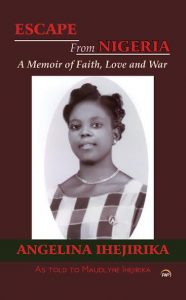
“Escape From Nigeria” is about my family’s journey that brought us here as refugees of the Nigerian-Biafran War, on June 9, 1969, arriving at Chicago’s O’Hare Airport with the clothes on our backs. My parents had six small children ages 1 to 10, when my father, Christopher, received an opportunity to study abroad in 1966. He was studying at Northwestern University in Evanston when the war broke out in July 1967, severing all communications with the outside world, so that for two years, neither he nor my mom, Angelina, knew if the other were alive or dead.
You may recall the horrific Nigerian-Biafran War represented the first time starvation was used as a weapon of mass destruction, ending in the deaths of 2 million Biafrans — and charges of genocide. An Irish missionary nun would set off a chain of miracles that would lead an instructor at Northwestern and four other North Shore couples to undertake a desperate effort to find us, amidst a raging war. It would involve recruiting both ordinary and extraordinary people, U.S. Congressmen and the leader of Biafra itself, and fundraising, for exit visas, and seats on the very last missionary flight out of Biafra.
This 162-page memoir is a tribute to my now 89-year-old mother, but also a love letter to the Americans who saved our family’s lives, and most importantly, a testimony to the goodness of God.
What advice would you give to immigrants in experiences like yours?
Trust in God, always. In the face of devastation and poverty, unimaginable and horrific violence, the most overwhelming of odds stacked against you, He is there. The message of my mom’s life is that faith, determination and hard work can surmount the seemingly impossible; that the American Dream is as possible a pursuit today as it was when we arrived on American soil in 1969; and that God’s blessings are no. 1, not to be squandered, and no. 2, to be paid back.
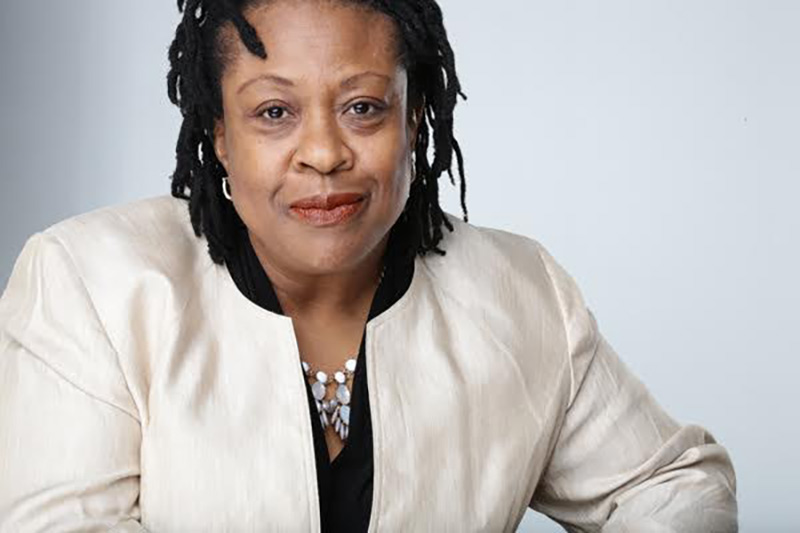
Do you ever want to return home? Do you ever have the urge?
As it was my immediate family only who escaped the war, we frequently go ‘home’ to visit our vast extended family, and have continued to do so over the years. Several siblings have planted their own roots there. I am not sure I myself will return to live there, for I have planted my own roots of family and career in Chicago. But as any immigrant will tell you, Nigeria, however, will always be ‘home.’
You are a urban affairs reporter for the Sun Times, how has journalism changed since you have been writing?
The Internet and technology changed Journalism perhaps more rapidly than any other large, global industry in the past 15 years. The definition of what it means to be a reporter has dramatically changed as well, severely impacting the once traditional journalism sources of newspapers, magazines, television and radio. Digital technology gave rise to new media, blogs and aggregate sites, allowing more individuals and entities to enter the arena of newsgathering and reporting and increasing competition for the finicky news consumers.
With wireless connectivity, smart phones and social media, anyone can capture news as it happens and transmit it into the public sphere within minutes, forcing traditional journalism outlets to keep up in finding new ways to deliver today’s news, giving rise to the 24-hour news cycle. This of course is good and bad, good in that consumers now have access to a broader range of voices and ideas; bad in that the competition has killed a large segment of the traditional industry. Either way, it’s changed how reporters do our jobs.
In the past, I’d go out into the field with a photographer to cover a story, conduct my interviews, come back and do my research, then file my story by deadline for first view in the next day’s newspaper. Covering a story out in the field today means interviewing, photographing and videotaping the story; posting bits and pieces of the story throughout the day on whatever platforms our readers choose to receive their news on, be it Twitter, Facebook, Instagram, etc.; then posting the story on our Website as soon as it’s ready — knowing that by the time it appears in print the next day, it will already be old news.
What’s on your playlist?
Jill Scott, Lauryn Hill, The Weeknd, Twenty One Pilots, Rihanna, Andra Day, John Legend, Adele, Alicia Keys, Miguel, Avery Sunshine, Ne-Yo, Sam Smith
What do you like most about Chicago?
Well, friends elsewhere always ask me why I’ve never moved from Chicago. ‘How can you take Chicago winters?’ they ask. My response: ‘Because of Chicago summers.’ I love Chicago in the Spring and Summer. It’s the most beautiful, vibrant, enjoyable small, big town in the warm months. And I love the lake running through it.
What is the future of print journalism?
As technology continues to change, so will the way we reach our readers; our relationships with a better-educated audience; our competitors. Print Journalism will metamorphose, for sure, availing itself of new digital storytelling tools, from audio and video to blogs and content aggregation, with the goal to reach a more self-conscious audience wherever that audience gravitates. Unlike some naysayers, I believe print is here to stay, however. Even as that generation which grew up on newspapers pass on, newer generations are sure to discover that nothing beats the satisfaction of having newsprint — tangible, touchable history — in your hands.
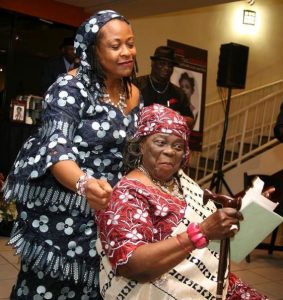
How has your mother adapted to the United States?
My mother was educated by Catholic missionary nuns in Nigeria at a time and within a culture that did not believe in educating girls, who were married off quite young. She fought for her education, working to pay her tuition when her parents could not, and defying efforts to marry her off. She became a teacher, and married a teacher, my father. So by the time we arrive in the United States, there was no question as to the value or significance my parents placed on education.
My mother worked many jobs to help my father support our large family — from a night waitress to nursing home aide, eventually becoming an entrepreneur, operating a store that sold African wear/artifacts. And when my Dad passed with five children in college, she sacrificed much to pay for our college educations. And she pushed her children, even as she pushed herself, returning to school to complete her degree well into her 60s.
In retirement, she’s been involved in humanitarian endeavors through the foundation she founded in 1999, ‘Voice of a Woman for Humanity,’ through which she’s provided elementary and college scholarships to youth in Nigeria and Catholic school scholarships here in Chicago; operated soup kitchens in Nigerian villages and funded a pipe project to bring running water to her own village. A grandmother of nine and great-grandmother of one, she remains active in the Chicago Archdiocese. So I’d say she’s adapted quite well.
Who’s is your favorite author?
I have a diverse palette, but I particularly inhale books by black women authors, and favorites include Toni Morrison, Maya Angelou, Alice Walker, Lorraine Hansberry, Ntozake Shange, Terry McMillan, Chimamanda Ngozi Adichie, Michelle Alexander, Pearl Cleage, J. Califorenia Cooper, I could go on.


